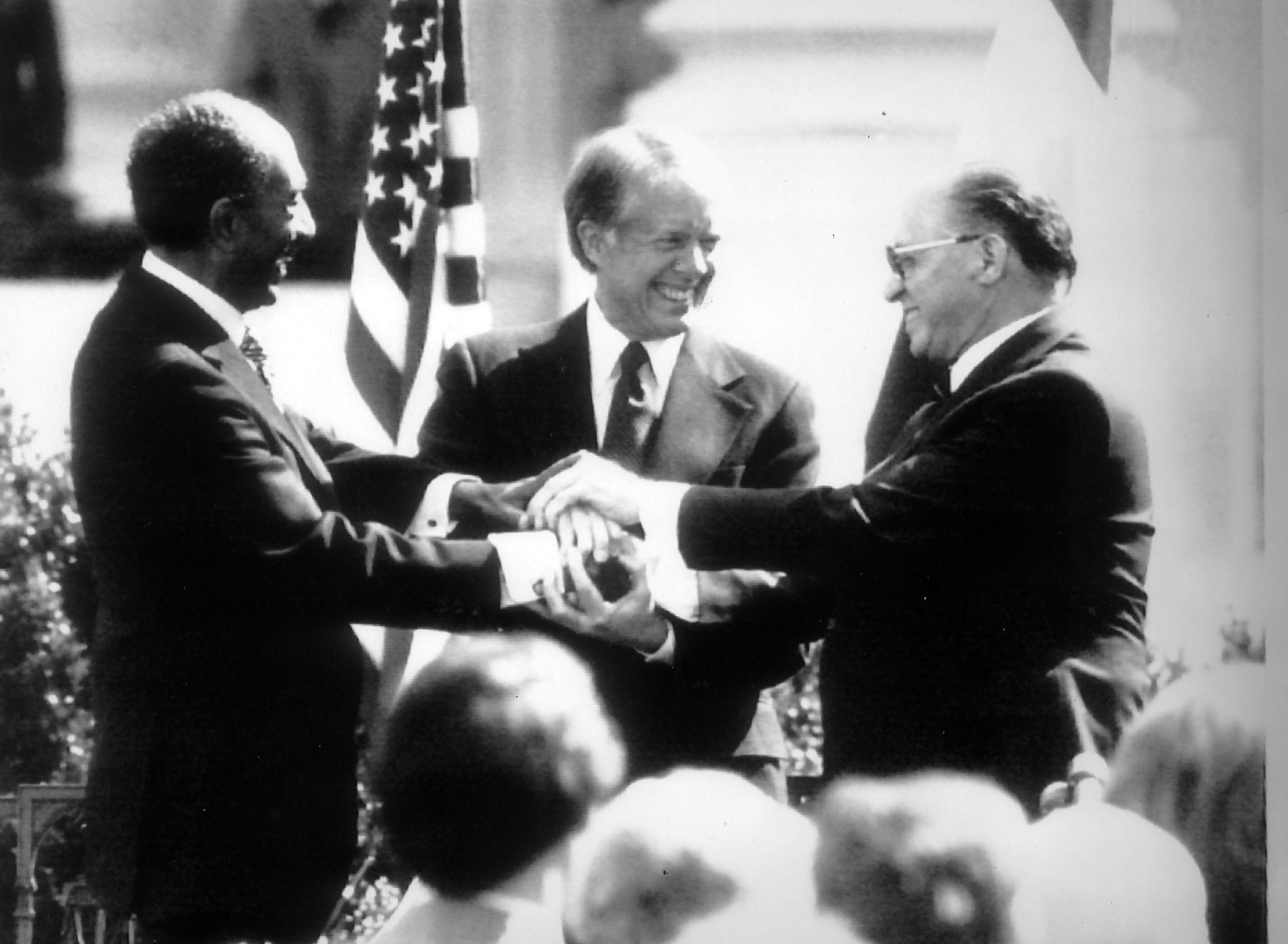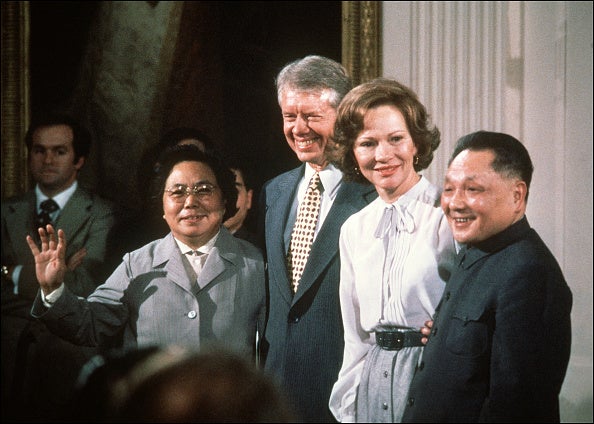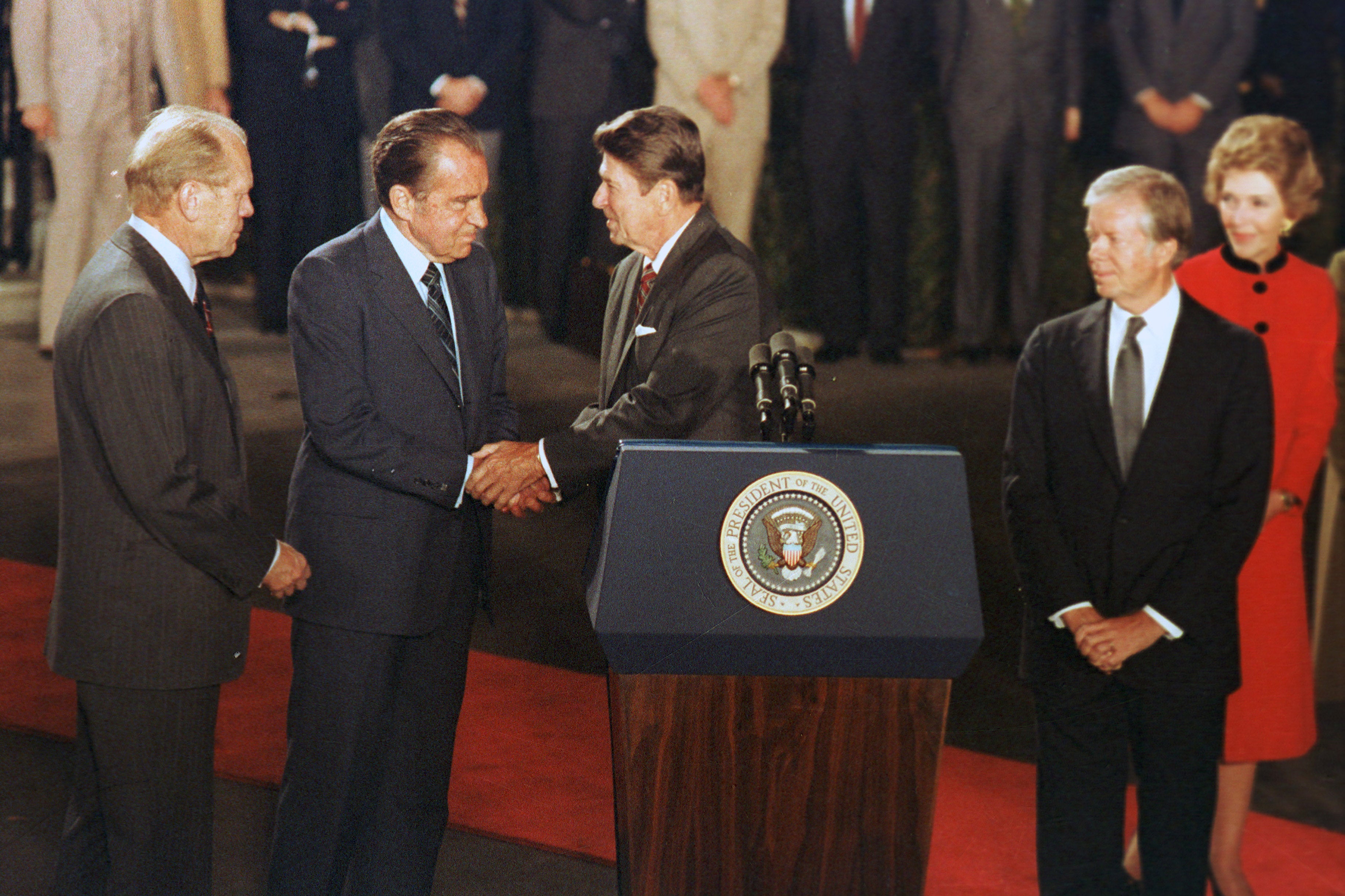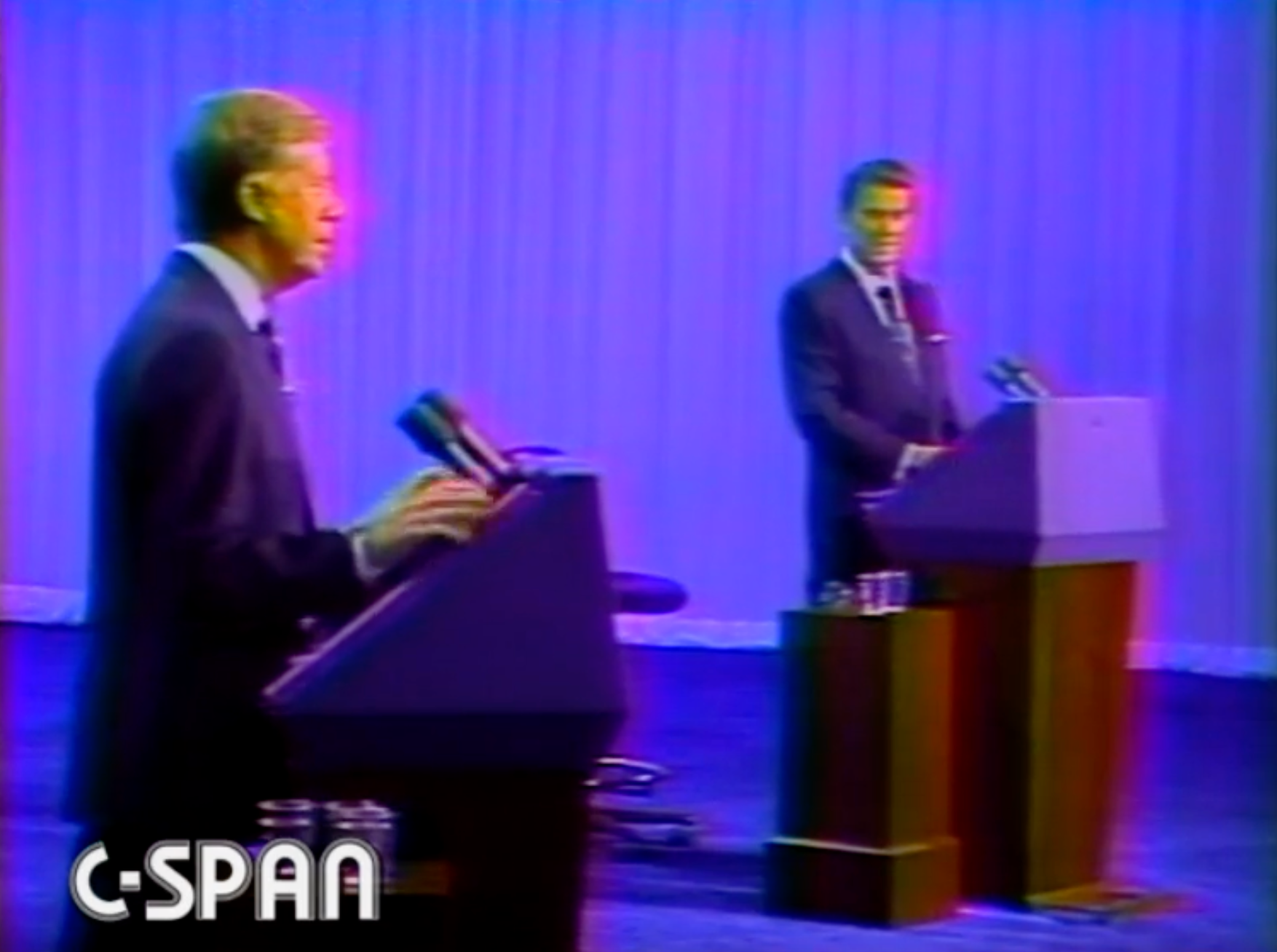Jimmy Carter: The unlikely 39th president of the United States
The somewhat unorthodox leader led his country through one of the most tumultuous eras of American history, writes Ariana Baio


Your support helps us to tell the story
From reproductive rights to climate change to Big Tech, The Independent is on the ground when the story is developing. Whether it's investigating the financials of Elon Musk's pro-Trump PAC or producing our latest documentary, 'The A Word', which shines a light on the American women fighting for reproductive rights, we know how important it is to parse out the facts from the messaging.
At such a critical moment in US history, we need reporters on the ground. Your donation allows us to keep sending journalists to speak to both sides of the story.
The Independent is trusted by Americans across the entire political spectrum. And unlike many other quality news outlets, we choose not to lock Americans out of our reporting and analysis with paywalls. We believe quality journalism should be available to everyone, paid for by those who can afford it.
Your support makes all the difference.Despite just one four-year and somewhat unorthodox term in office, Jimmy Carter brought much hope to the White House during a tenure that was marred by several major crisises.
As America’s 39th president, he emphasized human rights in his foreign policy, championed environmentalism at a time when it was not yet popular, and appointed record numbers of women and people of color during his administration, which lasted from 1977 to 1981.
Several major events transpired during Carter’s presidency, notably the US energy crisis, the Iran hostage ordeal, the Three Mile Island nuclear accident, the Camp David Peace Accords and the Soviet-Afghan war.
Many viewed Carter, who grew up selling peanuts as a teenager on his family’s land in Plains, Georgia, as an unlikely candidate for Commander-in-Chief, and some critics later dismissed his tenure as a “failure.”
However, Carter had a long history of local and state politics before even arriving in Washington, D.C., and eventually claiming the Oval Office. By 1969, he had served on the Sumter County school board, in the Georgia state senate and made an unsuccessful bid for Georgia governor.
To win the gubernatorial election in 1970, Carter adopted more conservative positions. But rather than invoking traditional Southern values, Carter surprised his Georgia constituents by calling for an end to racial discrimination in his 1971 inaugural address.

“This is a time for truth and frankness. The next four years will not be easy ones. The problems we face will not solve themselves. They demand from us the utmost in dedication and unselfishness from each of us. But this is also a time for greatness,” he said.
“At the end of a long campaign, I believe I know our people as well as anyone. Based on this knowledge of Georgians North and South, Rural and Urban, liberal and conservative, I say to you quite frankly that the time for racial discrimination is over.”
His support of civil rights would later be a hallmark of his presidential campaign.
Barred by state law from seeking a second consecutive term as governor, Carter made another quantum leap and ran for president as the country was reeling from its disastrous Vietnam War, Watergate and the resignation of Richard Nixon.

As a relative unknown, even among his own party, Carter was considered the most improbable of long shots. During his campaign he would reportedly often start with the phrase “Hello, my name is Jimmy Carter, and I’m running for President.”
However, his tireless campaigning and his promise that “I’ll never lie to you” appealed to voters. After a grueling series of state primaries in early 1976, he won the Democratic nomination over a field of better-known candidates. In the autumn of 1976, Carter narrowly defeated Republican incumbent Gerald Ford.
In a respectful address on November 3, 1976, he congratulated Ford, describing him as “the toughest and most formidable opponent that anyone could hope for,” and promised to unite the nation.
“It’s not going to be easy for any of us, I don’t claim to know all the answers but I have said many times during my campaign round all 50 states, that I am not afraid to take on the respnsibilities of president of the United States, because my strength and my courage and my advice and my counsel and my criticism comes from you,” he said.
“And if I can tap the greatness that’s in you and the American people then we can make our nation’s government and a source of pride once again...It’s time for us to get together to correct our mistakes, to answer difficult questions and to make our nation great.”
Carter took office on January 20, 1977, and emphasised his populist message by walking, with his wife and four children, nearly two miles from the steps of the Capitol to the White House. His presidency was mired, however, by several major turns.
As his first order of business, Carter granted official pardons to hundreds of young Americans who had evaded military conscription during the Vietnam War. The measure was designed to heal some of the wounds that divided the country.
One of his biggest downfalls was that Carter was not a compelling speaker. Combined with economic stagnation, rising inflation and a high unemployment rate he faced throughout his presidency, he failed to adopt widespread public support.
He was also uncompromising as an executive, putting him into conflict with members of Congress, even in his own party. Carter failed to win passage of many measures he endorsed, including attempts to revise the tax system, reform welfare programs, control the cost of health care and provide for national health insurance.
Notably, in a struggle that lasted almost as long as his presidency, Carter fought over an energy program that was structured to make fuel expensive enough that consumers would be encouraged to conserve it.

By the time he appeared in a cardigan for a nationally telecast speech to encourage energy conservation before that first winter was over, Carter was the butt of jokes. Carter delivered this speech, often referred to as his “Malaise Speech,” on July 15, 1979, while the country was in the midst of a full-blown energy crisis.
In it, he said that everyday Americans were suffering from a “crisis of confidence.”
“It is a crisis that strikes at the very heart and soul and spirit of our national will,” he said. “We can see this crisis in the growing doubt about the meaning of our own lives and in the loss of a unity of purpose for our nation.
“The erosion of our confidence in the future is threatening to destroy the social and the political fabric of America.”
The battle with the energy program preoccupied and debilitated Carter’s domestic staff. There were few other imaginative programs on the home front, leading one Carter aide to lament, halfway through the administration, that the White House was suffering from “terminal narcolepsy.”
Where Carter found more success was in foreign policy, which he grew more enthusiastic about as his presidency progressed.
He built upon the work of Nixon by formalizing relations with China, ushered agreements that give Panama sovereignty over most of the Canal Zone, met with the Soviet leader Leonid Brezhnev to sign the nuclear arms control agreement known as Salt II and delivered the Camp David peace accords between Egypt and Israel in 1979.
His unyielding policies preserved the climate that isolated the Soviets and contributed to the end of the Cold War a decade later.
However, ultimately, what became cemented in Carter’s legacy were the failures of the Iran hostage crisis, when mobs ransacked the US embassy in Tehran capturing 52 people and holding them hostage for the duration of his presidency.
In a bold attempt to save the hostages, Carter organized a rescue operation that resulted in disaster when an American military helicopter crashed into a plane waiting to ferry the hostages to freedom.
“It was my decision to attempt the rescue operation. It was my decision to cancel it when problems developed in the placement of our rescue team for a future rescue operation. The responsibility is fully my own,” he said in an address to the nation.
“As President, I know that our entire Nation feels the deep gratitude I feel for the brave men who were prepared to rescue their fellow Americans from captivity.
“And as President, I also know that the Nation shares not only my disappointment that the rescue effort could not be mounted, because of mechanical difficulties, but also my determination to persevere and to bring all of our hostages home to freedom.”

The tragedy left an enduring impression on Carter that ultimately contributed to his failed re-election later that autumn - he was trounced by Ronald Reagan in the 1980 race.
“I’ve not achieved all I set out to do; perhaps no one ever does. But we have faced the tough issues. We’ve stood for and we’ve fought for and we have achieved some very important goals for our country,’ Carter said after losing.
“These efforts will not end with this administration. The effort must go on. Nor will the progress that we have made be lost when we leave office. The great principles that have guided this Nation since its very founding will continue to guide America through the challenges of the future.”
However, Carter described the day he yielded office to Ronald Reagan in 1981 as “one of his happiest” because the hostages were freed. His first duty as a former president was to fly immediately to Frankfurt to welcome them back.
Though Carter remained active in the Democratic Party, he never again sought elective office and preferred to live, out of the limelight, at his home in Georgia.
Carter died on Sunday, December 29, at his home in Plains, Georgia, aged 100.
Join our commenting forum
Join thought-provoking conversations, follow other Independent readers and see their replies
Comments